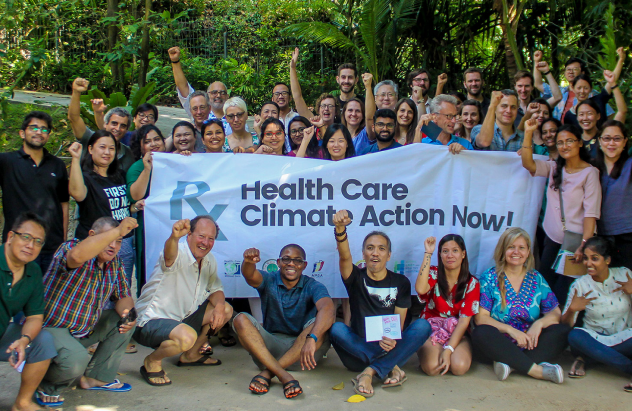With a mission to heal, health care has an opportunity to use its ethical, economic, and political influence to be a climate leader.
Health care can help forge a future with healthy hospitals and healthy people by implementing transformative climate solutions that reduce harmful pollution and strengthen resiliency. The Health Care Climate Challenge is building a global coalition of health care institutions at the forefront of this transformation.
Image


